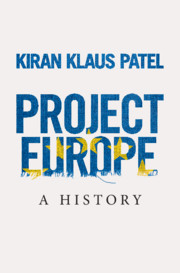Refine search
Actions for selected content:
2 results

Project Europe
- A History
-
- Published online:
- 24 April 2020
- Print publication:
- 23 April 2020
Stop Propagating Disaster Myths
-
- Journal:
- Prehospital and Disaster Medicine / Volume 14 / Issue 4 / December 1999
- Published online by Cambridge University Press:
- 28 June 2012, pp. 9-10
- Print publication:
- December 1999
-
- Article
-
- You have access
- Export citation
